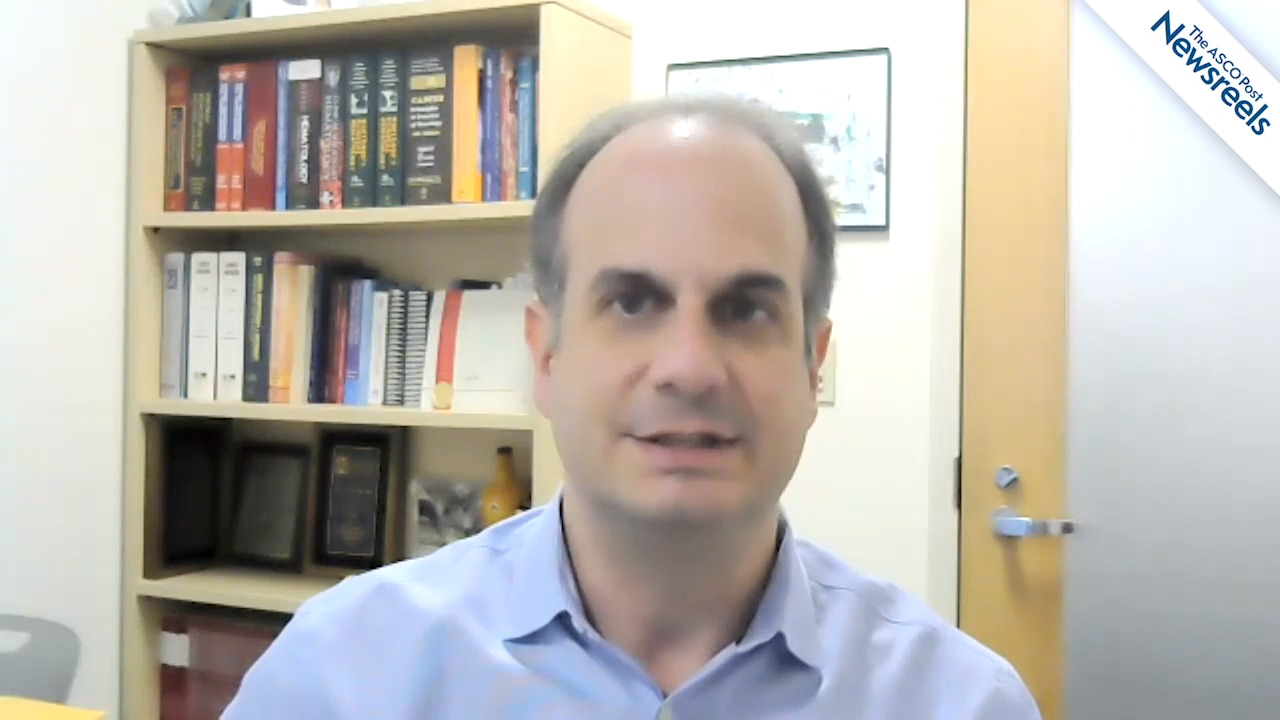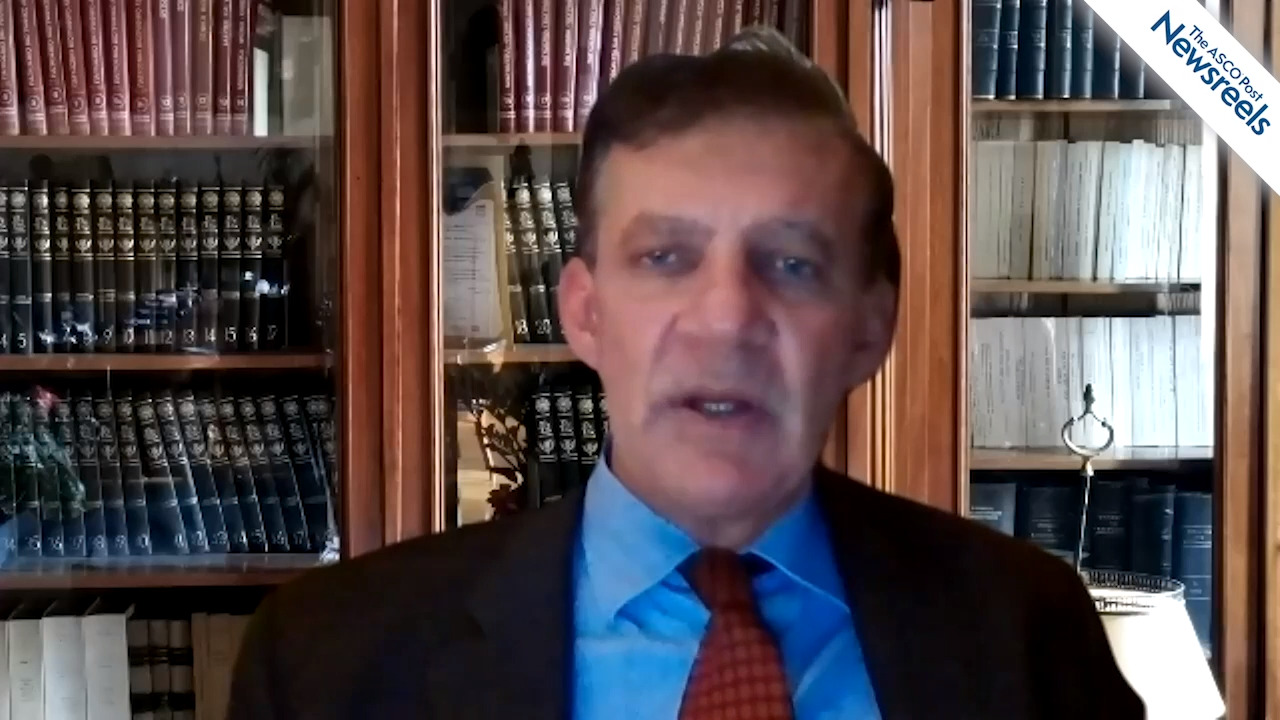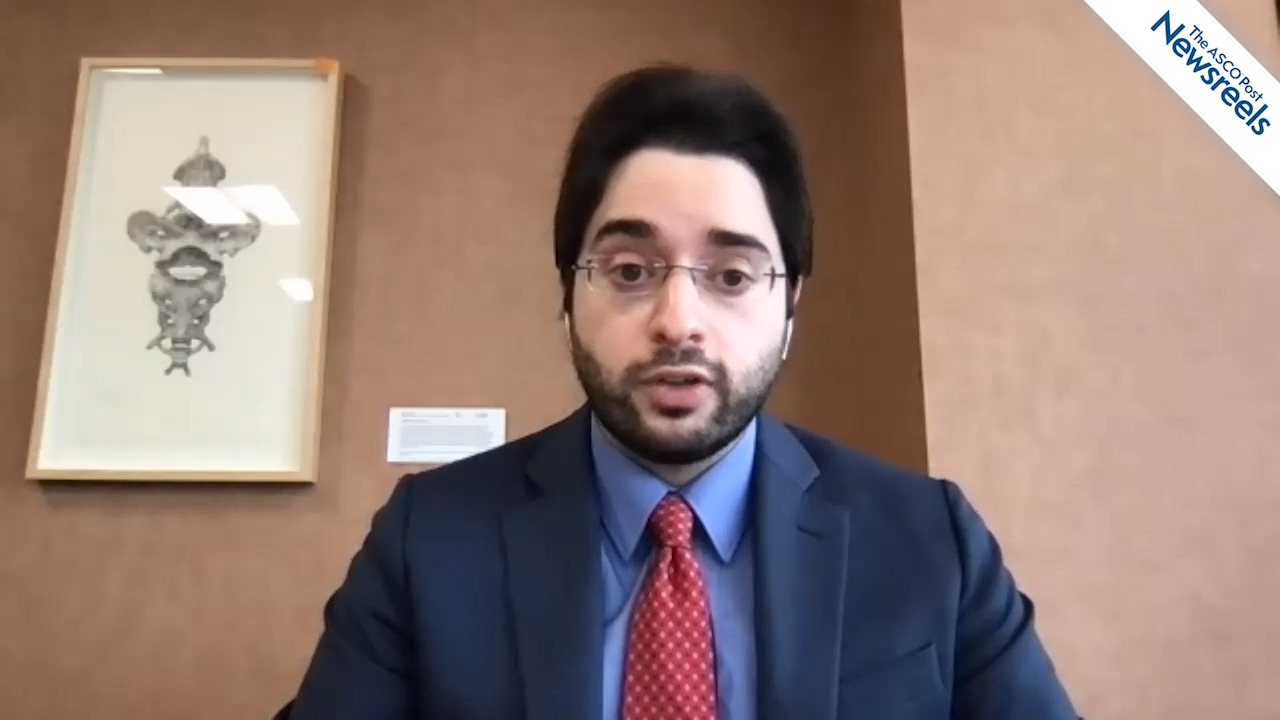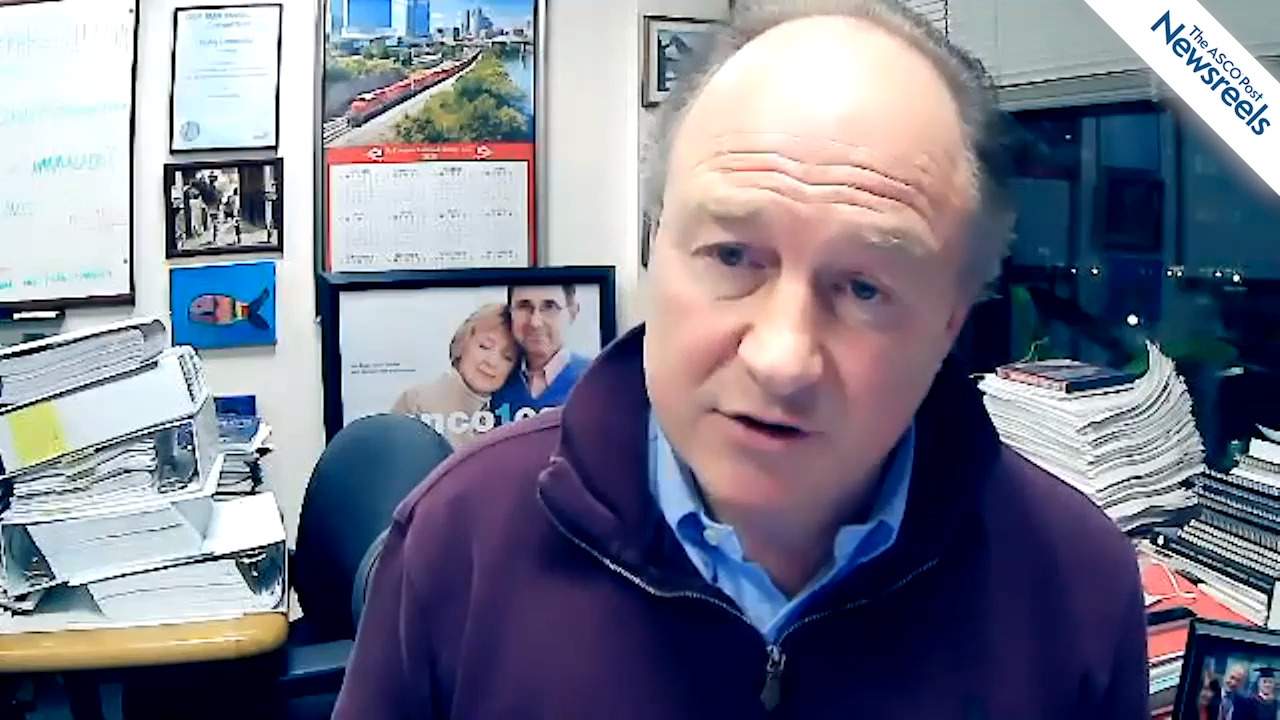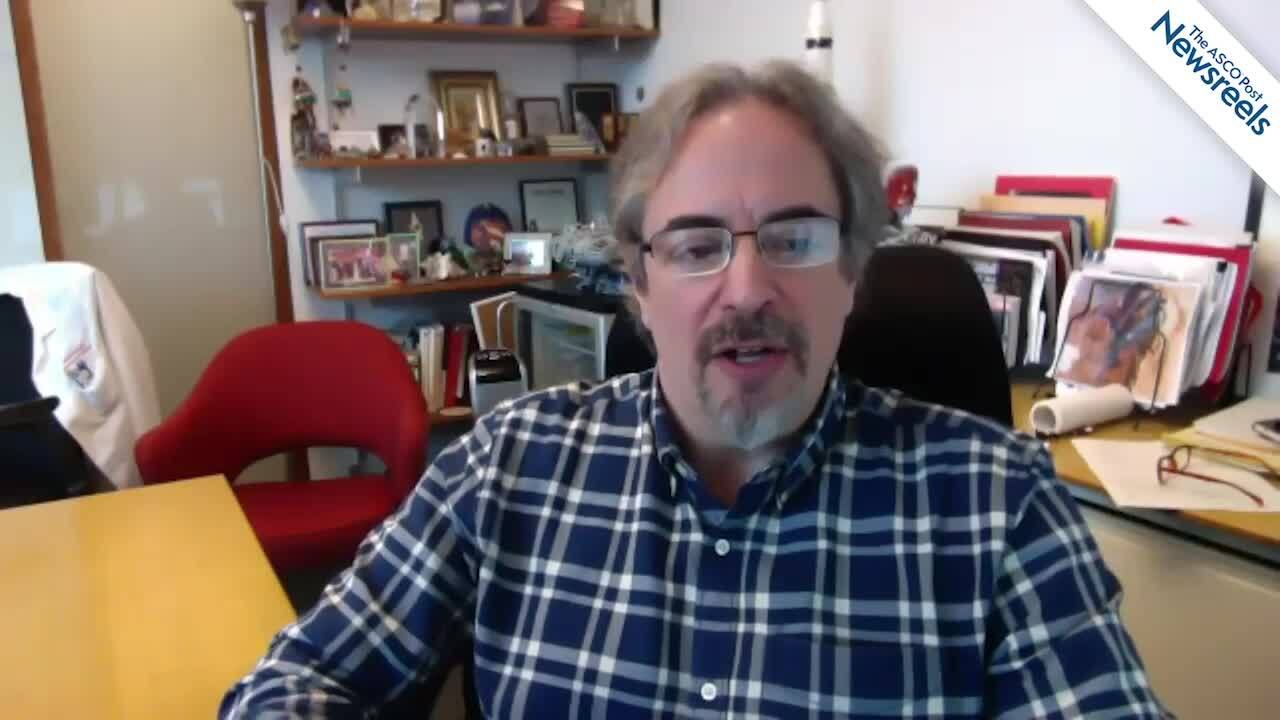Sagar Lonial, MD, on CAR T-Cell Therapies for Myeloma: Novel Approaches and Longer-Term Follow-up Data
2020 ASH Annual Meeting & Exposition
Sagar Lonial, MD, of the Emory University School of Medicine, summarizes key papers presented in a session he co-moderated on how second-generation CAR T cells can be used to treat patients with multiple myeloma (Session 653).
The ASCO Post Staff
Corey Cutler, MD, MPH, of Dana-Farber Cancer Institute, discusses results from a multicenter trial that compared reduced-intensity allogeneic hematopoietic cell transplantation to hypomethylating therapy or best supportive care in patients aged 50 to 75 with advanced myelodysplastic syndromes (Abstract 75).
The ASCO Post Staff
Meletios A. Dimopoulos, MD, of the University of Athens, discusses data from the phase III APOLLO study, which evaluated the use of subcutaneous daratumumab plus pomalidomide and dexamethasone, vs pomalidomide and dexamethasone alone, in patients with relapsed or refractory multiple myeloma (Abstract 412).
The ASCO Post Staff
Hassan Awada, MD, of the Taussig Cancer Institute, Cleveland Clinic Foundation, discusses the use of newer machine-learning techniques to help decipher a set of prognostic subgroups that could predict survival, thus potentially improving on traditional methods and moving acute myeloid leukemia into the era of personalized medicine (Abstract 34).
Paul G. Richardson, MD, of Dana-Farber Cancer Institute, gives his expert perspective on three important studies in multiple myeloma: long-term results from the IFM 2009 trial on early vs late autologous stem cell transplant in patients with newly diagnosed disease; the effect of high-dose melphalan on mutational burden in relapsed disease; and daratumumab plus lenalidomide, bortezomib, and dexamethasone in transplant-eligible patients with newly diagnosed disease (Abstracts 143, 61, and 549).
The ASCO Post Staff
Ari M. Melnick, MD, of Weill Cornell Medicine, discusses the BCL10 mutation in patients with activated B-cell–like diffuse large B-cell lymphoma, and his study results which showed that the mutation should be considered as a biomarker for ibrutinib resistance so that alternative targeted treatments can be prioritized (Abstract 3).
